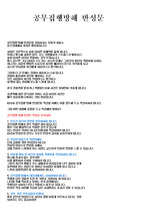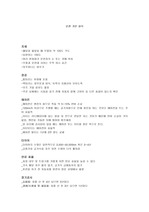Can Artificial Intelligence Boost Developing Electrocatalysts for Efficient Water Splitting to Produce Green Hydrogen?
(주)코리아스칼라
- 최초 등록일
- 2023.07.31
- 최종 저작일
- 2023.05
- 14페이지/
 어도비 PDF
어도비 PDF
- 가격 4,600원

* 본 문서는 배포용으로 복사 및 편집이 불가합니다.
서지정보
ㆍ발행기관 : 한국재료학회
ㆍ수록지정보 : 한국재료학회지 / 33권 / 5호
ㆍ저자명 : Jaehyun Kim, Ho Won Jang
목차
Abstrac
1. Introduction
2. Basic ML Algorithms
3. Electrocatalysts Discovery with ML
3.1. HER and OER
3.2. HER catalysts discovery with ML
3.3. OER catalysts discovery with ML
4. Opportunities and Prospect
Acknowledgement
References
Author Information
영어 초록
Water electrolysis holds great potential as a method for producing renewable hydrogen fuel at large-scale, and to replace the fossil fuels responsible for greenhouse gases emissions and global climate change. To reduce the cost of hydrogen and make it competitive against fossil fuels, the efficiency of green hydrogen production should be maximized. This requires superior electrocatalysts to reduce the reaction energy barriers. The development of catalytic materials has mostly relied on empirical, trial-and-error methods because of the complicated, multidimensional, and dynamic nature of catalysis, requiring significant time and effort to find optimized multicomponent catalysts under a variety of reaction conditions. The ultimate goal for all researchers in the materials science and engineering field is the rational and efficient design of materials with desired performance. Discovering and understanding new catalysts with desired properties is at the heart of materials science research. This process can benefit from machine learning (ML), given the complex nature of catalytic reactions and vast range of candidate materials. This review summarizes recent achievements in catalysts discovery for the hydrogen evolution reaction (HER) and oxygen evolution reaction (OER). The basic concepts of ML algorithms and practical guides for materials scientists are also demonstrated. The challenges and strategies of applying ML are discussed, which should be collaboratively addressed by materials scientists and ML communities. The ultimate integration of ML in catalyst development is expected to accelerate the design, discovery, optimization, and interpretation of superior electrocatalysts, to realize a carbon-free ecosystem based on green hydrogen.
참고 자료
없음




